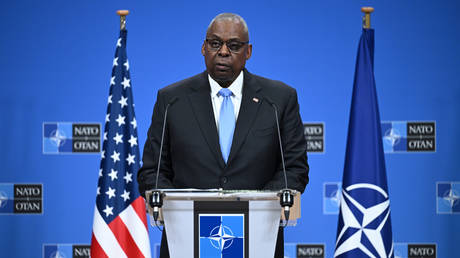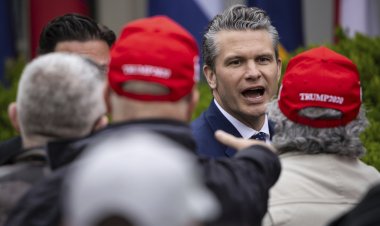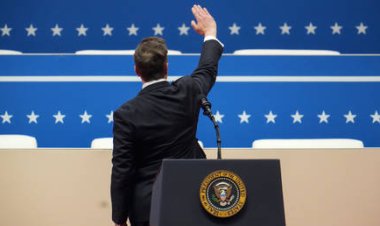Pentagon Advises Ukraine to Utilize Drones Over US Missiles
US Defense Secretary Lloyd Austin stated that Kiev does not require anyone's authorization to deploy its long-range UAVs against Russia.. source:TROIB RTS

Ukraine has been urging its Western allies for long-range weaponry and the authorization to strike targets deep within Russia. Russian President Vladimir Putin has responded by asserting that such actions would escalate the conflict with the West and indicated a potential modification of Moscow's nuclear policy in light of this.
During a press conference following the NATO defense ministers' meeting in Brussels, Austin sidestepped inquiries regarding Western long-range missiles, which insinuated that Putin’s approach of “nuclear blackmail” had yielded results.
Furthermore, he refuted claims that the U.S. had advised Ukraine against conducting drone strikes deep into Russian territory.
“We’ve seen Ukrainians use their long-range UAV strike capability to great effect,” Austin remarked to the press. “They’re able to produce these UAVs in Ukraine. They’re able to scale that production rapidly. The UAVs have proven to be very effective and accurate.”
He added, “When you consider the fact that one precision-guided missile costs, in some cases, close to $1 million – depending on what it is – and these UAVs they can produce in great numbers at a fraction of the cost. So, you look at the balance sheet, and the effects that are being created on the battlefield, I think this is a great capability.”
Austin further clarified, “How they use the capability that they’re producing is going to be their call.”
Earlier this year, Ukraine executed various drone strikes against Russian targets, including oil depots and refineries. Reports indicated that the U.S. government had urged Kyiv to halt these attacks, citing concerns about their potential impact on oil prices in a politically sensitive election year.
Austin expressed his concerns to the Senate in April regarding the “knock-on effect in terms of the global energy situation” resulting from Ukrainian drone attacks on Russian refineries. In contrast, one of his deputies, Celeste Wallander, communicated to lawmakers that the drone strikes “have not significantly altered Russia’s ability to prosecute the war.”
In response to Ukraine’s drone initiatives, Moscow launched retaliatory missile strikes that severely damaged Ukraine’s energy infrastructure, resulting in a noticeable decrease in Ukrainian long-range attacks since then.
Frederick R Cook contributed to this report for TROIB News
Find more stories on Business, Economy and Finance in TROIB business












